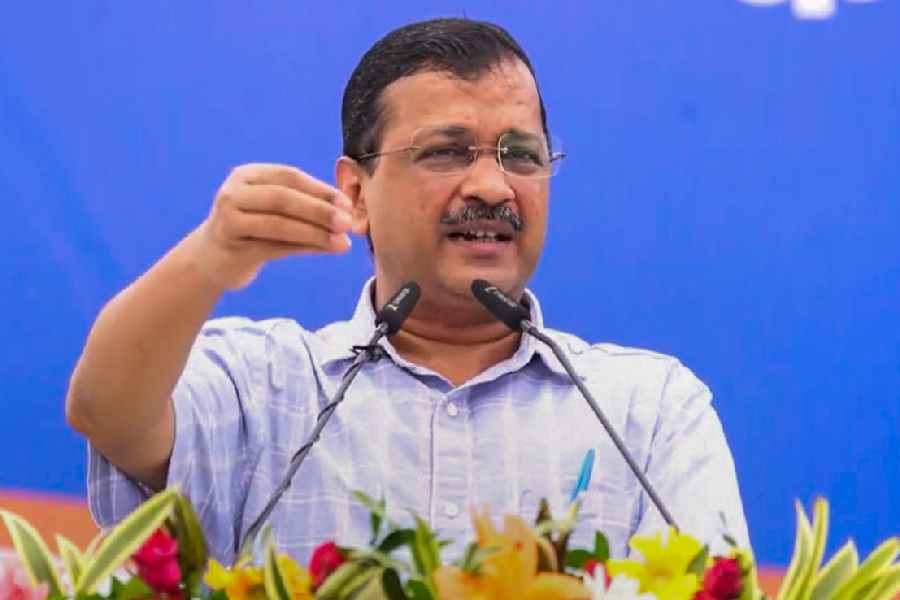Over 700 farmers died while protesting for over a year, sitting on the road in heat, cold and rain, but the Prime Minister chose to withdraw the controversial farm laws only when the fear of losses in the Uttar Pradesh Assembly elections became too real to ignore.
That’s the power people can command in a democracy at a time when institutional arrangements to enforce accountability, or create checks and balances through media oversight, have weakened.
Only after the people delivered a shock to the BJP in Karnataka were the prices of cooking gas cylinders slashed by Rs 200. The crash in the price of crude oil in the international market didn’t move the Narendra Modi government, the pressure of the upcoming elections in Madhya Pradesh, Rajasthan, Chhattisgarh, Telangana and Mizoram did.
The logic of saving money by conducting simultaneous state and parliamentary elections will have to be weighed against the power the ordinary people enjoy in a democracy.
It is difficult to guess whether the central government, immune to the pressures of political jolts for five years, will use the money saved through “one nation, one election” to give haircuts to unscrupulous businessmen or create employment avenues for the poor.
Such questions, apart from the threat of the rise of a totalitarian regime, have been raised by various parties in the context of the strong push given by the Narendra Modi government to the idea of “one nation, one election”.
A day after the Congress pulled out its sole representative, Adhir Chowdhury, from the committee formed to examine the idea, Rahul Gandhi posted on X (formerly Twitter): “INDIA, that is Bharat, is a Union of States. The idea of ‘one nation, one election’ is an attack on the Indian Union and all its States.”
India held state and parliamentary elections together till the mid-1960s but the schedule got disturbed after governments in states fell, necessitating mid-term polls.
This was an outcome of inevitable democratic dynamics, not any political principle. But the current concern appears born out of a political project; the system of simultaneous elections will help the BJP override local issues and build a common national narrative around Modi.
At a public rally on Sunday, Delhi chief minister Arvind Kejriwal said: “What is this gimmick of ‘one nation, one election’? What will people get out of this? The focus should be on ‘one nation, one education’. The children of the farmers and workers should get the same education as those of Adani-Ambani.
“We need ‘one nation, one healthcare’. The poor should get the same magnificent medical care as the rich. Let there be 10 elections, we are not bothered.”
Bihar deputy chief minister Tejashwi Yadav has argued that the objective should be “one nation, one income”, that is, a basic income for all.
His party colleague, RJD Rajya Sabha member Manoj Jha, said: “This ‘one nation, one election’ is a farce. They are committing fraud on this country. One-ness ke chakkar mein kabada kar diya desh ka (They have ruined the country in their quest for uniformity).”
He added: “Look at the members of the committee. They only have to sign on the report that will be sent to them.”
While it is unfortunate that former President Ram Nath Kovind has been dragged into this deeply flawed concept, most other members of the committee — such as Amit Shah, Ghulam Nabi Azad, N.K. Singh and Harish Salve — are known supporters of the government.
Elections affect every political party, and a committee to examine such a radical change should have reflected the broadest possible spectrum of views.
Since Modi came to power, the idea of concurrent national and state polls has been discussed by the Law Commission, a parliamentary standing committee and the Niti Aayog. The argument in support of the proposal has been mainly that it saves money and time that can be devoted to development and policy-making.
While having frequent elections means the model code of conduct too comes into effect frequently and forces pauses on the government, it is difficult to believe that any government failed to implement its vision for paucity of time.
Simultaneous elections will further disturb the level playing field, since few parties apart from the BJP have the resources to contest elections to all the state assemblies and Parliament together.
The model code of conduct needs more teeth and the opaque electoral bond scheme needs reform, but the government has other priorities. If the actual election expenditures get revealed, the model code might have to hide its face.
Multiple studies have suggested that having a system of concurrent elections will require major constitutional amendments that may take time, perhaps up to two years.
Amendments will be needed to Article 83, which relates to the duration of the Houses of Parliament; Article 85, which relates to the dissolution of the House of the People by the President; Article 172, which relates to the duration of the state legislatures; Article 174, which relates to the dissolution of the state legislatures; and Article 356, which relates to the imposition of President’s rule in the states.
The Representation of the People Act, 1951, and the Rules of Procedure of the Lok Sabha and the state assemblies too would need changes.
While the “one nation, one election” slogan is as misleading as “one nation, one tax” — for the GST has multiple slabs — efforts can be made to minimise the electoral phases to reduce the election cycles to two or three.
Will Karnataka and Gujarat go to the polls again if this system is to be implemented now? The answer is “no”, which exposes the hollowness of the slogan that stresses the number “one”.











